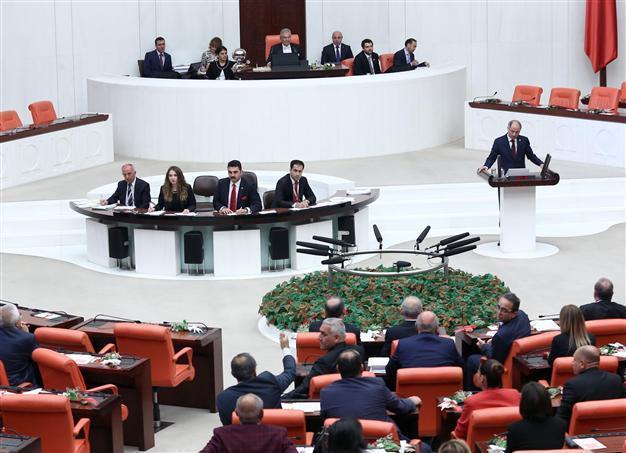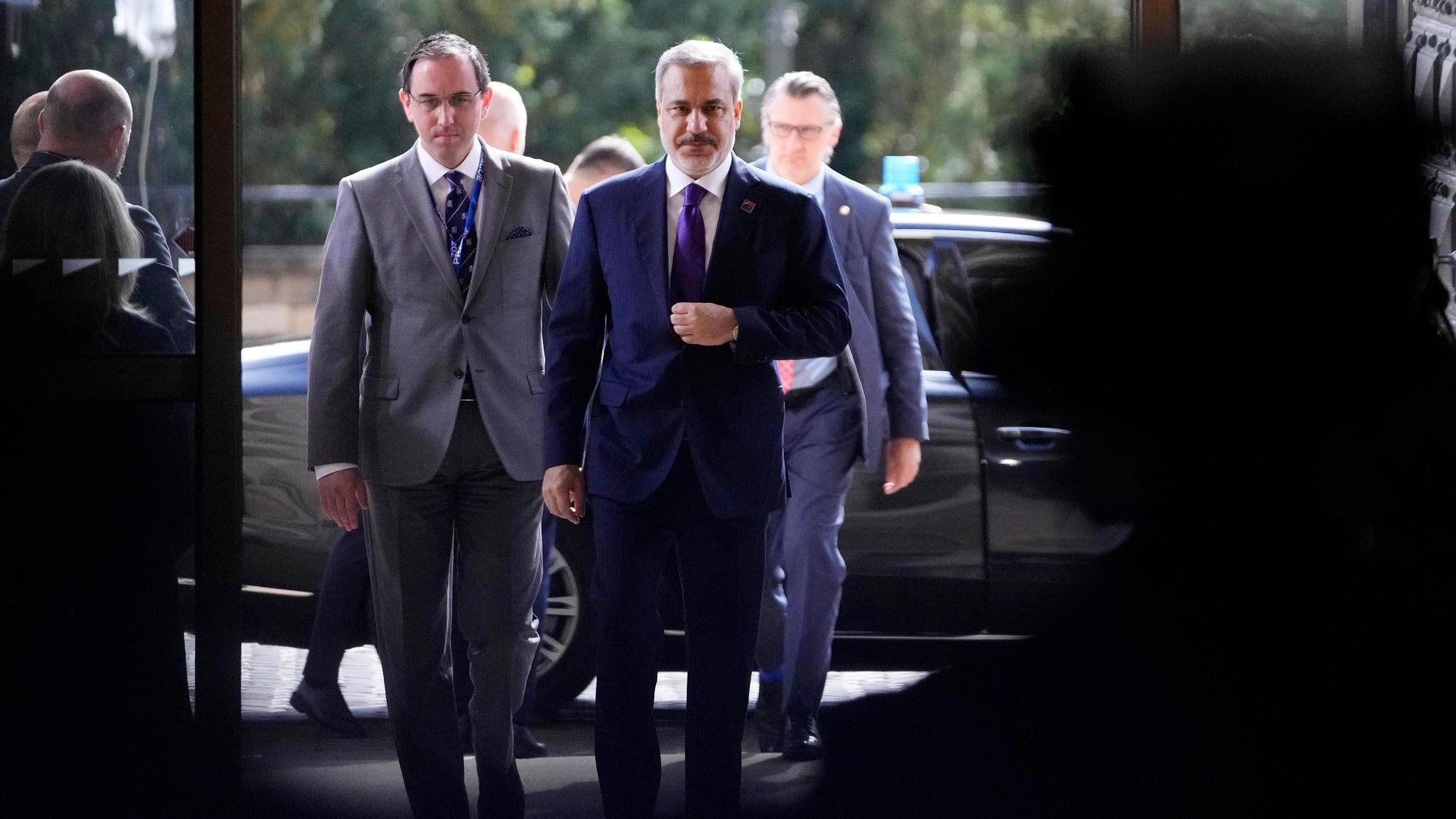Speaker election for Turkey's parliament turns into coalition rehearsal
Nuray Babacan - ANKARA

DHA photo
Turkey's Republican People’s Party (CHP) has declared that the selection of a parliamentary speaker has no connection to the formation of a future coalition government, but the Justice and Development Party’s (AKP) maneuvers suggest otherwise amid moves to shape a power-sharing deal.CHP leader Kemal Kılıçdaroğlu said June 24 that Deniz Baykal, the former leader of the party who is currently serving as acting parliamentary speaker as the eldest deputy, is their candidate. The leader of the social democrat party was brief when asked whether Baykal’s nomination was a harbinger of a coalition: “No. This doesn’t have any relation with a coalition.”
President Recep Tayyip Erdoğan already made public that he has no intention of giving the mandate to form a government to the AKP, which lost its parliamentary majority in the June 7 election, before the new parliament elects a speaker. Such a statement has forced the potential coalition partners to accelerate their preparation for a bargaining process.
Having been forced to seek a partner in one of the three main opposition parties to govern after losing its parliamentary majority, the AKP government has begun sketching plans for a power-sharing deal.
The issue came to the agenda during a cabinet meeting chaired by Prime Minister and AKP leader Ahmet Davutoğlu on June 22. Some members of the cabinet proposed that new offices should be created with the separation of the Culture and Tourism Ministry, Environment and Urban Planning Ministry and Forestry and Water Affairs Ministry into their constituent parts.
The idea of increasing the number of executive ministries from 21 to 25 and creating a 30-seat cabinet, including the prime minister, were also floated during the meeting, sources said. The incumbent, 26-seat cabinet is composed of the prime minister, four deputy prime ministers and 21 executive ministries.
During the meeting, the number of ministries that could be offered to a minor partner was not discussed, according to the same sources. A part of the meeting was devoted to reviewing power-sharing deals and the distribution of ministries in past coalition governments in Turkey.
Some ministers also voiced their favorite options for a coalition partner, but Davutoğlu did not make any comment on the proposals.
Despite increasing speculation over their next maneuver and choice for their nominee for the parliamentary speaker’s chair, the AKP remained the only party as of press time that had not yet announced its candidate for the chair.
Meanwhile, shortly after the CHP announced Baykal’s candidacy, the Nationalist Movement Party (MHP) nominated Ekmeleddin İhsanoğlu, former head of the Organization of Islamic Cooperation (OIC), for the same post.
İhsanoğlu, who was elected as the MHP Istanbul deputy in the June 7 parliamentary election, individually filed his petition on June 24 in order to run for the position since political parties are not permitted to nominate candidates for the election.
İhsanoğlu was defeated in August 2014’s presidential bid against Erdoğan despite being the common nominee of both the MHP and the CHP.
The Peoples’ Democratic Party (HDP) has already made public that they will support their Mersin deputy, Dengir Mir Mehmet Fırat, a former deputy and a founding member of the AKP, for the position.
The deadline to apply for the parliamentary speaker’s position is June 27, with the voting process to begin June 30.
















